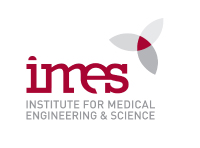SPECIAL SEMINAR
Thomas Heldt, PhD, MIT
Bio: Thomas Heldt is a Principal Research Scientist at MIT’s Research Laboratory of Electronics, where he co-directs the Computational Physiology and Clinical Inference Group. His research interests include mathematical modeling of physiological systems, model identification, clinical monitoring, and applications to neurocritical and neonatal critical care. Thomas received his Masters in Physics from Yale University and his PhD in Medical Physics from the Harvard-MIT Division of Health Sciences and Technology.
Abstract: Brain injury can lead to significant disability and hardship for individuals who survive the injury. This is particularly true in children, in whom brain injury can result in severe neurocognitive deficits and lifelong dependence on care providers. Large volumes of heterogeneous data are collected from patients in neurocritical care to support real-time clinical decision-making, monitoring of disease progression, and titration of therapy. However, systematic physiologically based analysis and fusion of this data are required to advance our understanding of the dynamic nature of brain injury and recovery, and to improve the care of patients with brain injuries.
My talk will focus on two contributions to analyzing high-resolution multi-channel data streams from patients in neurocritical care. The first involves obtaining noninvasive estimates of intracranial pressure (ICP) in adults, and has moved from initial validation studies to more extensive evaluation currently with clinical collaborators at Boston hospitals. Noninvasive estimation of ICP promises to expand dramatically the pool of patients for whom this important cranial vital sign can be obtained. The second contribution relates to estimating parameters of cerebral oxygen metabolism in preterm neonates on ventilators, which may eventually enable patient-specific treatment options in this population.
These two instances highlight the importance of a physiological understanding of the underlying system, and the formulation of appropriately chosen computational physiological models. This integrative approach provides an effective framework for neurocritical care monitoring, and will lead to improved understanding of the injured brain.


